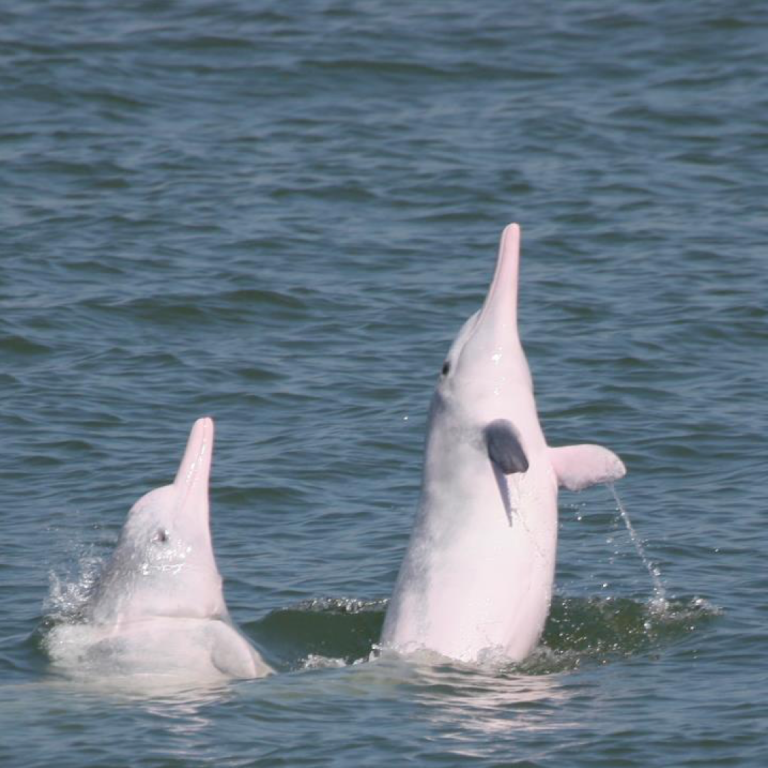
Pink dolphins staying longer in Hong Kong waters, a sign of falling pollution levels during Covid-19
- Green groups warn pollution will return unless city does more to change harmful behaviours
- Volunteers who clean beaches find more Covid-19 trash, including used masks, plastic cutlery
Native to the Pearl River Estuary and listed as a vulnerable species, their population in the area has been decreasing from about 2,500 in 2013 to about 2,000 last year, according to the conservation organisation WWF-Hong Kong.
Recent data collected by the organisation has shown that the sea mammals are spending more time in one of their major habitats, off Lantau Island. The improvement coincided with the suspension of cross-border ferries since February because of the pandemic.
Acoustic monitoring, using underwater sound recorders to detect the dolphins’ presence, found them in the area for between 2.6 and 4.3 hours every 24 hours this year, compared to less than 1.2 hours per 24 hour period last year, says Doris Woo Ka-yi, WWF-Hong Kong’s conservation officer.
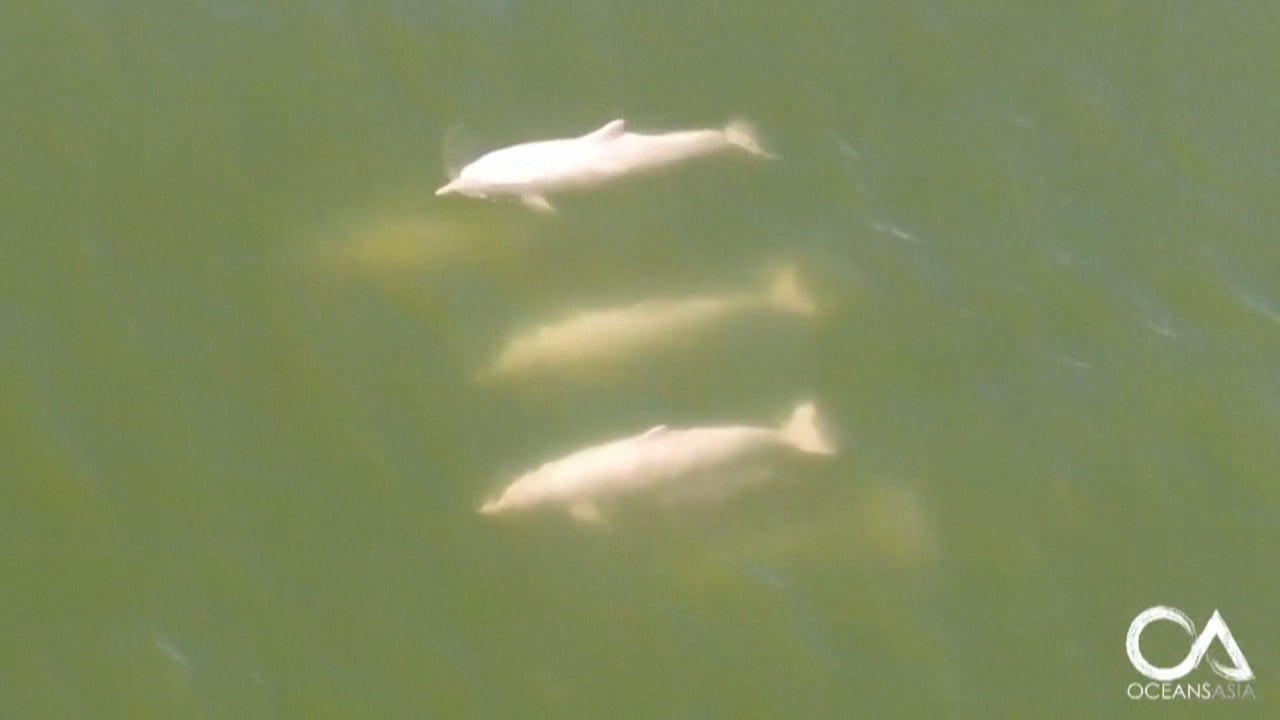
02:07
Rare pink dolphins are returning to Hong Kong
Their longer presence could mean they are staying longer, or that there are more of them, or both, experts say.
Lockdown measures to curb the spread of the coronavirus had a positive impact on Hong Kong’s environment, reducing water and air pollution, environmental experts say.
Warning that these improvements may be only temporary, they say Hong Kong has an opportunity now to make changes to human beings’ environmentally harmful behaviours.
‘Lessons learned from the pandemic’
Pink dolphins are Indo-Pacific humpback dolphins, also known as Chinese white dolphins, and have grey, white or pink skin.
Data from the Hong Kong Dolphin Conservation Society (HKDCS) shows that the number in Hong Kong waters, mainly off Lantau Island, plunged from 188 in 2003 to 32 in 2018 before rising slightly to 52 last year.
WWF-Hong Kong’s Woo says the pink dolphins have benefited from reduced noise and injuries from sea traffic, as well as improvements in the water quality and marine environment during the pandemic.
“The pandemic has provided us with an unexpected chance to reflect on ways to protect the species,” she says.
The rebound makes us feel a bit optimistic, but the number remains at a very low level
Taison Chang Ka-tai, chairman of the HKDCS, an NGO dedicated to the conservation of marine mammals, says the slight rebound in the number of pink dolphins last year was attributable to fewer high-speed ferries going to and from Macau and mainland China during the second half of last year.
“The rebound makes us feel a bit optimistic, but the number remains at a very low level,” he says.
He points out that it was the worsening marine environment, including increased marine traffic, coastal development, water pollution and fishing activity, that caused populations of pink dolphins and finless porpoises to decline.
The Marine Department suspended cross-boundary ferry services at the city’s three ferry terminals in early February because of the pandemic and they are yet to resume. There used to be around 130 to 140 daily round trips.
The total number of ocean and river vessels arriving in Hong Kong, carrying people and cargo, also declined by 41 per cent to 48,388 in the first half of this year, compared to the same period last year, according to official data.
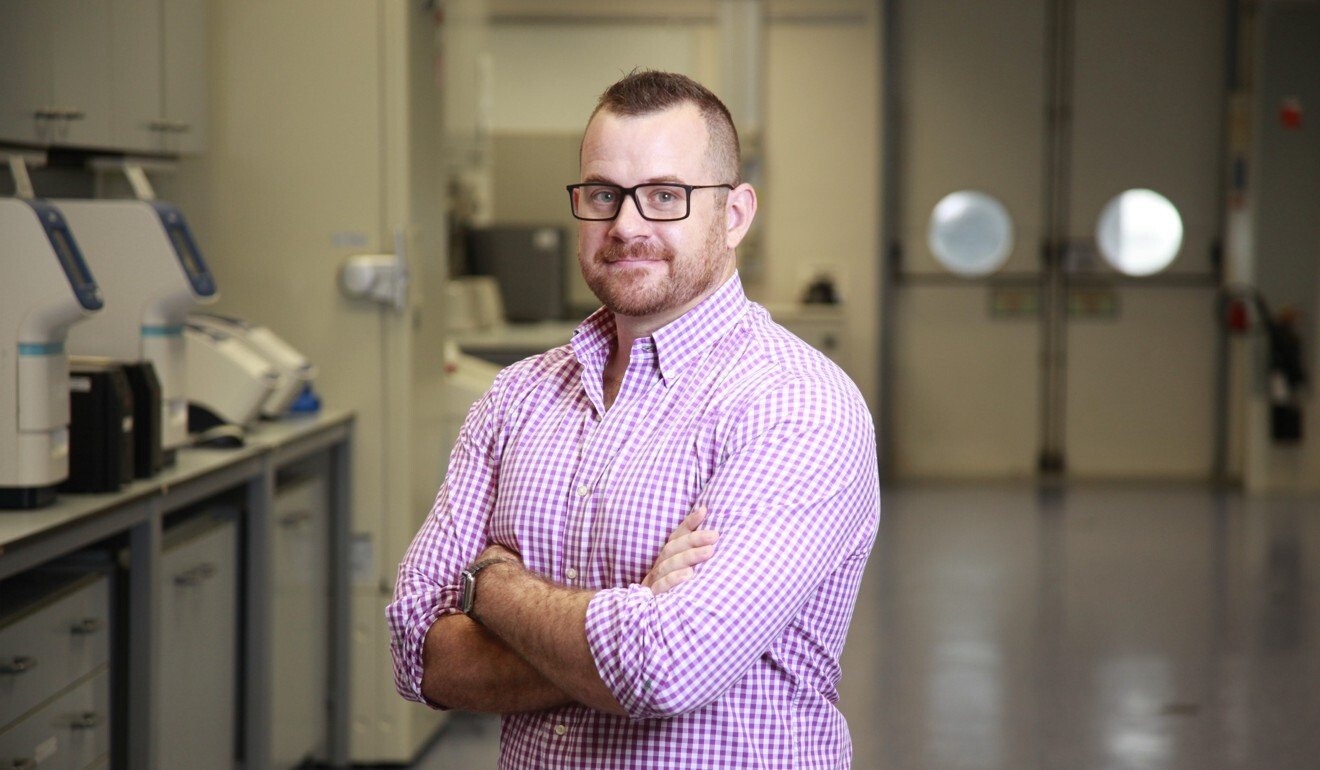
Dr David Baker, an associate professor with the Swire Institute of Marine Science of the University of Hong Kong, says apart from reduced water traffic, the sharp decline in visitors helped reduce waste water, resulting in cleaner water. Visitor arrivals plummeted by about 92 per cent year on year to about 3.6 million from January to September.
Better water quality can lead to strong, successful reproduction of marine life, and the cleaner water can mean more baby coral in the coming months, says Baker, a researcher in coral reef ecology.
“That’s going to be a positive outcome for our local marine ecology,” he says. “It will allow our local ecosystems to heal and replenish themselves.”
Warning that the situation can reverse quickly once lockdown measures are lifted, he says policy changes are needed, including reducing cross-border traffic and the speed of ferries, limiting the environmental impact of tourism, and improving waste water management.
“Unfortunately, our normal life wasn’t very sustainable with respect to the environment,” he says. “If we rush back to the way we were living before, we may miss the lessons that we could learn from the pandemic, especially with respect to the environment and how to take better care of it.”
Why Hong Kong needs more trees and what’s preventing it
‘Important to strike a balance’
The pandemic-related measures to contain the coronavirus have also led to reduced air pollution.
The non-governmental organisation analysed data on common air pollutants from the Environmental Protection Department and Transport Department, and found the decline to be significant, says Patrick Fung Kin-wai, its CEO.
Apart from seasonal and regional factors, a major reason for the improvement was reduced road traffic during the pandemic.
Transport Department data shows that the average daily number of public transport passengers was about 8.9 million during the first half of this year, down by about 30 per cent from the daily average of about 12.4 million last year.
Concerned that these improvements will prove temporary, Fung says the government should take measures to tackle air pollution, including reducing pollutant emission, establishing low-emission zones, and adopting better urban planning.
“Social distancing causes inconvenience in daily life and economic slowdown, but the easing of it impacts public health, not only from the coronavirus but also from air pollution,” he says. “We need to strike a balance.”
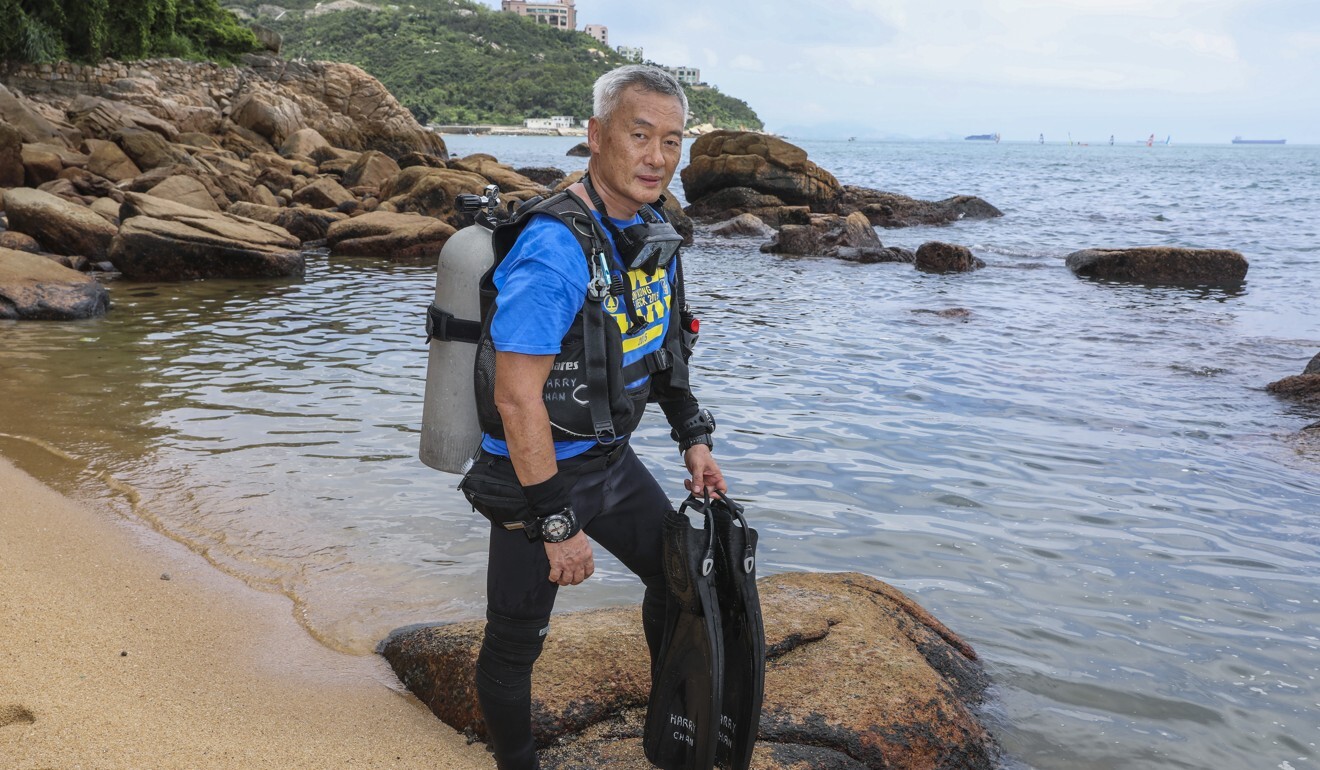
‘Make changes before it is too late’
However, not all measures to contain the pandemic made a positive impact on the environment.
There has been a rise in pandemic-related litter, including used masks and other protective items, on streets and beaches as well as in the sea.
The increased use of online shopping and takeaway food services this year, as more people stayed home and eateries had their opening hours and number of patrons restricted, has produced a flood of plastic waste, including disposable packaging materials and cutlery.
Diver Harry Chan Tin-ming, 67, says he has been finding more discarded masks and hand sanitiser bottles on beaches and underwater.
A volunteer who has been cleaning beaches and oceans for more than five years, he says he finds more than 10 or 20 masks on the beaches of Lamma Island, Lap Sap Wan and Stanley these days, compared to only three or four previously.
“Masks have added to the enormous volume of marine waste,” he says.
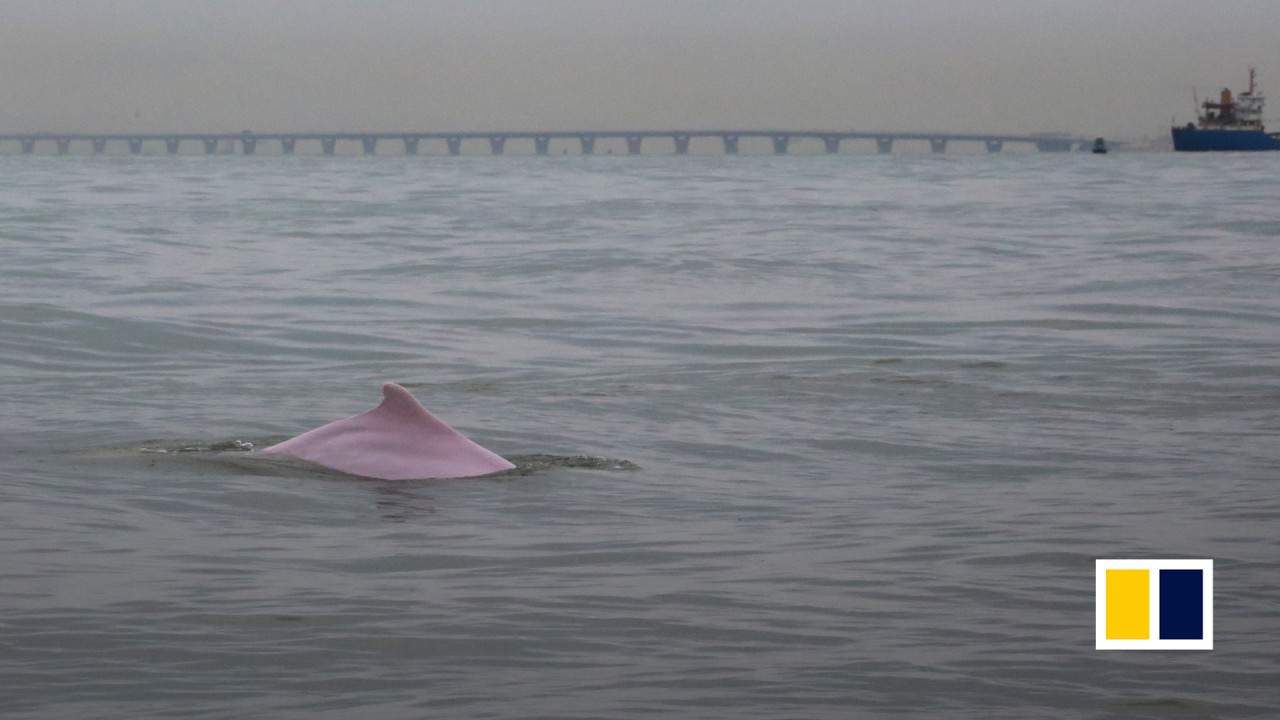
01:26
Chinese cruise along Hong Kong-Zhuhai-Macau bridge threatens rare white dolphins
The pandemic also disrupted his clean-up activities, including going underwater to retrieve “ghost nets” – the abandoned fishing gear that trap marine life and divers.
Edwin Lau Che-feng, founder and executive director of the environment group The Green Earth, says public health has been the priority during the pandemic, but the impact of the environment on public health should not be neglected.
“When the environment is damaged, we should not expect public health to improve,” he says.
The pandemic halted the work of green groups, including beach clean-ups, tree planting and research.
Lau says his organisation has gone online since May to continue raising awareness about environmental protection and the positive feedback shows there is strong interest.
“The pandemic has provided us with an opportunity to reflect and make changes to lead the earth to a sustainable path before it is too late,” he says.

